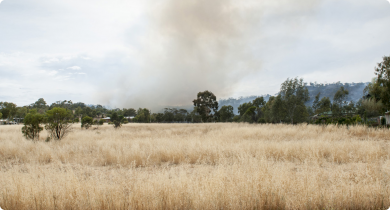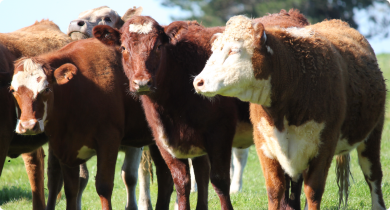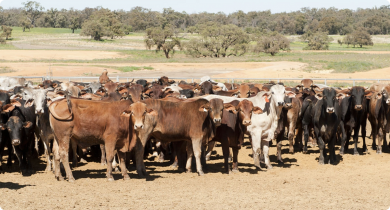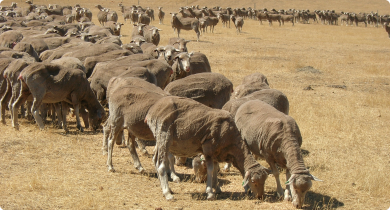Livestock & animals
The Department of Primary Industries and Regional Development supply chain support, research and development and rigorous biosecurity systems underpin the economic success of Western Australia’s livestock industries. In 2011/12, the WA livestock industries contributed 26% of the state’s agriculture, fisheries and forestry production, worth approximately $2 billion at the farm gate.
WA is a world leader in live exports, super fine wool production and dryland sheep and grain systems. Both cattle and sheep systems are focused on export markets to Asia and the Middle East. WA also has innovative, world-class integrated dairy and pork industries meeting local and South East Asian demand for safe, fresh milk and pork. The WA poultry industry is growing strongly as a result of increasing domestic consumption.
Global demand for high-quality, safe animal protein and products produced according to high animal welfare standards will continue to rise in coming years. Increasingly DAFWA will partner with industry -- locally, nationally and internationally -- in transformational business projects to capitalise on this demand.
Articles
Filter by search
Filter by topic
- Livestock species (8) Apply Livestock species filter
- (-) Remove Genetics & selection filter Genetics & selection
- Livestock management (8) Apply Livestock management filter
- (-) Remove Sheep filter Sheep
- Livestock research & development (1) Apply Livestock research & development filter
- Livestock parasites (1) Apply Livestock parasites filter






